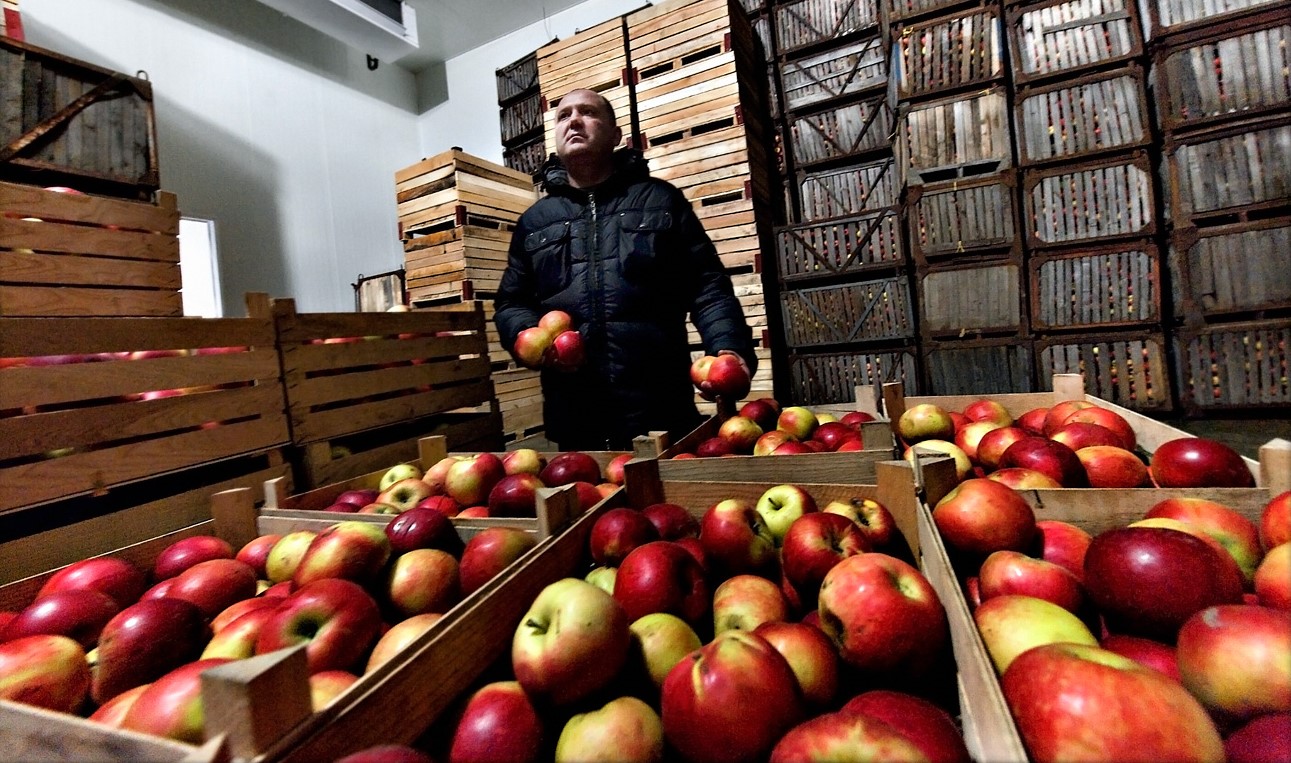Moldova is suffering due to the war in Ukraine – and we have a chance to help
IFAD Asset Request Portlet
Asset Publisher
Moldova is suffering due to the war in Ukraine – and we have a chance to help
Estimated reading time: 3 minutesSince the war in Ukraine began, nearly half a million people have fled across the border into Moldova. One in 10 of these refugees ultimately stay within its borders. Moldova, with a population of only 2.6 million people, now hosts the largest per capita number of Ukrainian refugees in the world.
And, on a daily basis, I see the immense impacts of the conflict in the faces of the nation’s small-scale farmers. Moldova, among the poorest countries in Europe before the war, is now coping with missing imports and limited exports – all while supporting neighbours in need.
In my role as IFAD’s Country Director for Moldova, I’ve had the privilege of working closely with farmers and the national government to help the nation’s rural poor build sustainable livelihoods. But today, we’re tackling a new crisis few of us saw coming – one which is testing the resilience that the people of Moldova have worked hard to build.
Now, more than ever, IFAD’s support is essential to help Moldova’s small-scale farmers respond to the crisis and remain resilient.
Opportunities to help are slipping through our fingers
Moldova imports over 90 per cent of its seeds, fuel, and fertilizer from Ukraine and Russia. The war has left 33,000 small- and medium-scale Moldovan farmers virtually empty-handed.
Farmers are telling us that they urgently need to sow seeds in May, while recent rainfall has created favourable conditions for sowing corn, sunflower, and soybean.
However, the fertilizer needed to grow these and other crops is also missing. According to the national statistics bureau, Moldova imports about 300,000 tons of fertilizer annually, the vast majority from Russia and Belarus. The national Ministry of Agriculture and Food Industry (MAFI) estimates that, without fertilizer, the production of staple foods – like wheat, corn, and barley – will drop by at least 30 per cent this year alone.
Meanwhile, the price of milk is soaring. Given that Moldova imports a significant amount of its milk, there’s a need – and an opportunity – to substitute with locally produced milk. But without the imported animal feed that dairy farmers rely on, this need can’t be met.
The country’s exports are coming under pressure, too. Normally, Moldova exports just under a fifth of its agri-food products to Russia. Now, 120,000 tons of apples are laying in cold storage – and they have to be sold within the next two months, before the next harvest begins. Although there are some opportunities to export to Romania, MAFI is estimating steep losses in the fruit sector alone.
 |
| Sergei, a worker at a fruit preservation facility in south-east Moldova, prepares apples for export to Russia and Belarus in this photo taken prior to the war. ©IFAD/Paolo Marchetti |
Support in unprecedented times of crisis
Even more than inputs, what Moldova really needs is financial support. Liquid assets will allow farmers, rural people, and the state alike to take matters into their own hands and purchase what they need, when they need it, provided that the market shortages are addressed.
IFAD plays a strategic role in providing this kind of support. We are working closely with MAFI and UN agencies to assess the situation and find solutions during this challenging time. We’re considering how our expertise in building rural resilience can be best put to use, and which financial initiatives—from finance vouchers for drought-resistant seeds and biological fertilizers, to grants for surface water reservoirs and rainwater collectors—will best support rural farmers.
At the same time, we’re mindful that the effects of the war in Ukraine are only just beginning, and that small-scale farmers in Moldova and other countries will need a way to both manage these effects and respond to the challenges they were already facing.
That’s why, at IFAD, we are intensifying our efforts to increase local food production, reduce post-harvest losses, and strengthen local and regional markets in some of the most impacted countries where we work.
Moldova has found itself on the front lines of an unprecedented crisis. Although IFAD was created to support medium- to long-term development, we can also shift our resources to address short-term needs that will help build long-term resilience, including providing agricultural inputs and financial support. Through these efforts, small-scale farmers in Moldova will be able to build their resilience, weather this turbulent period, and continue feeding people.
Samir Bejaoui is IFAD’s Country Director for the Republic of Moldova.
Read more about our current IFAD-supported projects in Moldova: the Rural Resilience Project and the Talent Retention for Rural Transformation initiative.
Publication date: 03 May 2022